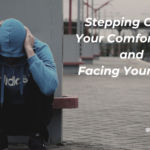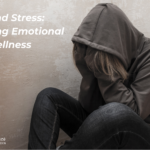Stress is a silent saboteur, sneaking into our lives and setting up camp in our minds. So, how do you Stop Getting Stuck in Stress Mode (Self-Help Tips)? For many, the cycle of stress feels like a hamster wheel—constantly running but never reaching the end. But what if you could break free? What if you could stop getting stuck in stress mode? This guide offers practical self-help tips to help you reclaim your peace and thrive.
Understanding Stress: The Silent Saboteur (Self-help Tips)
Jane’s Journey to Stress-Free Living
Jane, a 35-year-old marketing manager, used to feel like she was drowning in stress. Juggling work deadlines, family responsibilities, and personal commitments left her feeling overwhelmed and constantly on edge. Despite trying various methods to manage her stress, nothing seemed to work. Jane often found herself lying awake at night, her mind racing with worries about the next day. One day, after a particularly stressful week, she sought help from Stress coach London. Jane learned to implement effective stress management techniques with personalised guidance and support. Today, she enjoys a balanced life, finding time for her hobbies, and sleeping peacefully through the night.
Recognising the Signs of Stress
Before you can tackle stress, you need to recognise it. Common signs include:
- Physical Symptoms: Headaches, muscle tension, fatigue.
- Emotional Symptoms: Anxiety, irritability, depression.
- Cognitive Symptoms: Memory problems, poor concentration, constant worrying.
- Behavioural Symptoms: Changes in appetite, sleep disturbances, social withdrawal.
The Stress Cycle: How We Get Stuck
The stress cycle often begins with a trigger – a work deadline, financial worries, relationship issues. Your body responds with the fight-or-flight reaction, releasing hormones like cortisol and adrenaline. While this is helpful in short bursts, prolonged exposure keeps you stuck in stress mode, leading to burnout.
Breaking Free: Effective Self-Help Tips
- Mindfulness and Meditation
Mindfulness and meditation are powerful tools for managing stress. They help you stay present, reduce anxiety, and improve your overall mental well-being. Start with just a few minutes each day, focusing on your breath or a simple mantra. If your mind wanders, gently bring your focus back to your breath. You can also practice through daily activities like eating or walking by paying attention to the sensations & movements involved.
- Physical Activity
Exercise is a natural stress buster. Even if you walk around your home for 20 minutes a few times a week. Many people think it needs to be this big gym session, but it releases endorphins, which are your body’s natural mood lifters. Whether it’s a brisk walk, a dance class, or yoga, find an activity you enjoy and make it a regular part of your routine.
- Healthy Eating
Your diet plays a significant role in how you handle stress. Eating healthy foods does not need to cost a lot or be a big chore. Foods rich in vitamins and minerals can boost your resilience. Add plenty of fruits, vegetables, lean proteins, and whole grains to your meals. Avoid excessive caffeine and sugar, which can exacerbate stress.
- Adequate Sleep
Sleep is essential for managing stress. Aim for 7-9 hours of quality sleep each night. Put on some relaxing music and keep a sense of calm when you go to bed at night. I tend to leave a notebook beside my bed before lights out. I will write down anything that disturbs me or things to do. Establish a bedtime routine, keep my bedroom cool and dark and avoid screens before bed to improve my sleep hygiene.
- Time Management
Poor time management can lead to overwhelming stress. Prioritise your tasks, set realistic goals, and break them down into manageable steps. Tools like to-do lists, planners, and time-blocking can help you stay organised and reduce stress.
- Social Support
Don’t underestimate the power of a strong support network. Connecting with friends, family, or a support group can provide emotional support and practical advice. Have a coffee with a close friend to chat through your struggles. Sometimes, just talking about your stress can make a significant difference.
- Professional Help
If your stress feels unmanageable, seeking professional help is a wise decision. Stress Coach London can provide personalised strategies and support to help you navigate your stressors effectively.
Why a Stress Coach is Your Go-To Service Provider
A stress coach brings a wealth of knowledge and experience to help you tackle stress head-on. They offer tailored guidance, accountability, and support, making it easier for you to implement and stick to stress-reducing strategies. With a coach, you gain:
- Personalised Action Plans: Tailored strategies that address your unique stressors.
- Ongoing Support: Regular check-ins to keep you on track.
- Expertise: Professional advice based on extensive training and experience.
- Holistic Approach: Addressing all aspects of your life to improve overall well-being.
Conclusion
Breaking the cycle of stress is not about eliminating all stressors from your life – that’s impossible. It’s about learning to manage them effectively with these self-help tips. By incorporating mindfulness, physical activity, healthy eating, adequate sleep, time management, social support, and professional help into your routine, you can reclaim control over your stress and lead a more balanced, fulfilling life.
If you’re ready to break free from the stress cycle and achieve lasting peace, consider booking a call with a stress coach today. Remember, you don’t have to navigate this journey alone – expert support is just a phone call away. Take our Scorecard quiz today and test your stress levels.
FAQs
- What is the first step to managing stress effectively?
- Recognising the signs of stress is the crucial first step. Once you’re aware of the symptoms, you can start implementing strategies to manage it. Identifying stress triggers and understanding how your body responds to stress are essential. From there, you can develop a plan to address these triggers and implement stress-reducing techniques.
- How can mindfulness help with stress?
- Mindfulness helps you stay present, reduces anxiety, and improves mental well-being by focusing your attention on the here and now, rather than worrying about the past or future. Regular mindfulness practice can help you become more aware of your thoughts and feelings, allowing you to respond to stress more calmly and effectively.
- What types of exercise are best for stress relief?
- Any physical activity you enjoy can help relieve stress. Common options include walking, running, yoga, and dancing. The key is to choose an activity that you find enjoyable, as this will make it easier to stick with it. Even short bursts of exercise can be beneficial, so find ways to incorporate physical activity into your daily routine.
- Can diet really impact my stress levels?
- Absolutely. A balanced diet rich in vitamins and minerals supports your body’s stress response and overall mental health. Foods high in antioxidants, omega-3 fatty acids, and complex carbohydrates can help reduce inflammation and stabilize your mood. Avoiding excessive caffeine, sugar, and processed foods can also prevent spikes in stress levels.
- How can a stress coach help me?
- A stress coach provides personalised strategies, ongoing support, and professional expertise to help you manage stress effectively (self-help tips) and improve your overall well-being. They can help you identify your stress triggers, develop coping mechanisms, and provide accountability as you work towards your goals. With a stress coach, you have a partner who is dedicated to helping you achieve a calmer, more balanced life.
Ready to take the next step in managing your stress? Book a call today and start your journey to a calmer, more balanced life.










